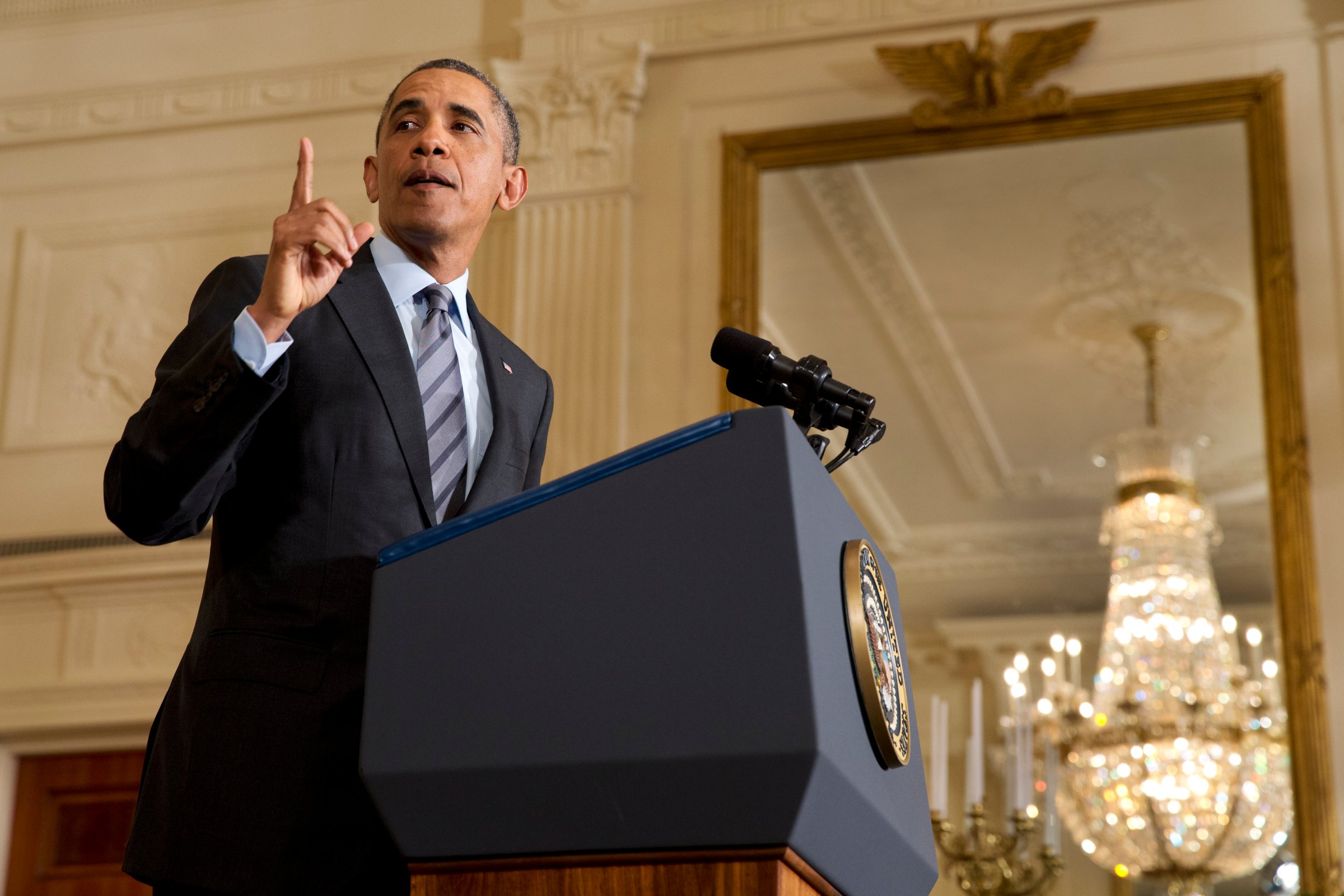
President Obama huddled with 16 Congressmen at the White House on Thursday to discuss potential National Security Agency reforms, moving one step closer to releasing his recommendations to fix the spy agency after six months of international debate and congressional hearings.
The 90-minute meeting focused on two potential changes. One would strip the NSA of its ability to store telephone “metadata” — information about the phone numbers involved in calls, including their length, but not their content. Instead, the President may determine that a third party or the phone companies themselves hold the records. The other change would create a special public advocate to the Foreign Intelligence Surveillance Act (FISA) court, so that judges, who now only hear the government’s position, could hear civil-liberty concerns as well. White House press secretary Jay Carney said Thursday that Obama will announce any potential NSA or FISA reforms before the State of the Union on Jan. 28.
Representative Adam Schiff, a California Democrat, who attended the meeting, said the “bulk” of the time was spent discussing potential reforms to the metadata program. Schiff believes that the phone companies should hold on to the data because of privacy concerns, as a third private party would be “viewed as a surrogate” of the NSA, but said there was a “divergence of opinion” expressed on the topic during the meeting.
“The President made it clear today that he understands the value of the metadata collection programs,” wrote Republican Senator Saxby Chambliss of Georgia, the ranking member on the Intelligence Committee and a defender of the NSA’s telephone-record gathering, in a public statement. “He also made clear that some changes should be made to create trust in the program by making them more transparent to the American people.”
“There have not been actual instances where it’s been alleged that the NSA in some ways acted inappropriately in the use of this data,” said President Obama in his end-of-the-year press conference last month. “But what is also clear is from the public debate, people are concerned about the prospect, the possibility of abuse.”
Schiff said there was “much more convergence” on creating a FISA special advocate. “I think there was a substantial consensus that that would be desirable,” said Schiff, who introduced legislation enabling the Privacy and Civil Liberties Oversight Board to appoint such attorneys in September. “We spent more of our focus on what model should be used rather than whether it was a good idea.” In August, Obama endorsed “an independent voice” that could challenge the government’s position, and on Thursday, NSA’s outgoing deputy director, John C. Inglis, told National Public Radio that the agency “would welcome” the creation of a public advocate’s position at FISA.
Schiff said the President “kept his cards pretty close to the vest” throughout the meeting and is still seeking counsel before making any recommendations known to the public. White House staff will be meeting with representatives from technology companies on Friday.
More Must-Reads from TIME
- Cybersecurity Experts Are Sounding the Alarm on DOGE
- Meet the 2025 Women of the Year
- The Harsh Truth About Disability Inclusion
- Why Do More Young Adults Have Cancer?
- Colman Domingo Leads With Radical Love
- How to Get Better at Doing Things Alone
- Michelle Zauner Stares Down the Darkness
Contact us at letters@time.com